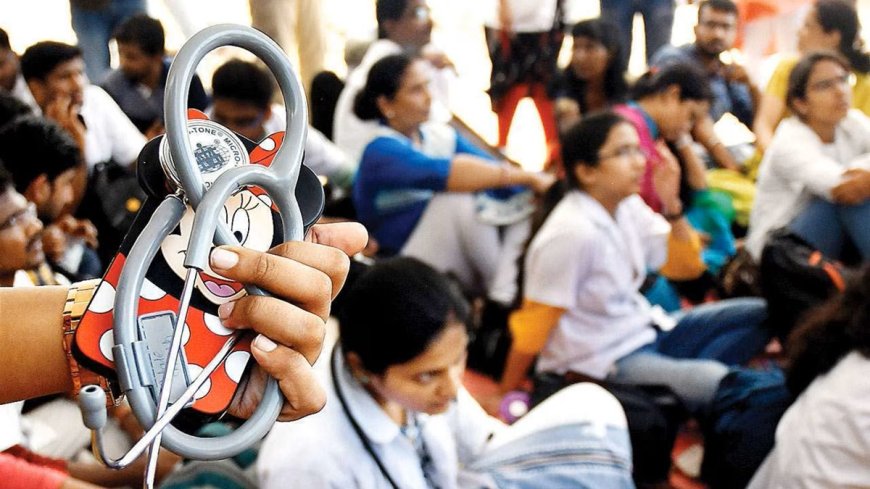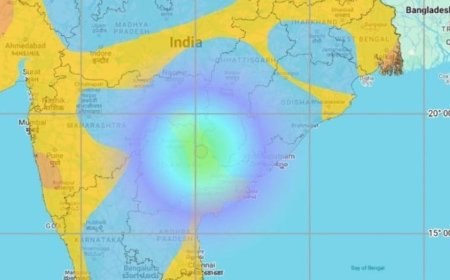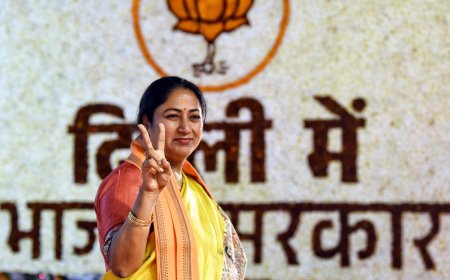NEET PG 2025 Exam Dates Declared in Two Sessions, Triggers Controversy as Medical Students Push for 'Unified Exam System'
The announcement of NEET PG 2025 in two different sessions has caused an uproar, with medical students urging the implementation of a 'Unified Exam System' to ensure fairness and transparency.

NEET PG 2025 Exam Dates Declared in Two Sessions, Triggers Controversy as Medical Students Push for 'Unified Exam System'
The announcement of the NEET PG 2025 exam being conducted in two different shifts has sparked a major debate among medical aspirants. Students preparing for the prestigious medical entrance exam have voiced concerns over fairness, questioning the impact of varying levels of difficulty across different exam sessions. The controversy has intensified, with candidates demanding a unified examination system to ensure equal opportunity for all.
Key Concerns Raised by Medical Aspirants
1. Variation in Difficulty Level Between Shifts
-
The primary concern among students is the potential variation in question paper difficulty across the two shifts.
-
Candidates fear that one session might be easier than the other, giving some aspirants an unfair advantage.
-
While normalization techniques exist, many believe they do not accurately reflect true performance.
-
A single-exam format would eliminate such inconsistencies and ensure uniformity.
2. Demand for 'One Nation, One Exam' Policy
-
The announcement has reignited discussions on the need for a single-session examination.
-
Students argue that having one nationwide exam session would maintain transparency and fairness.
-
Similar demands have been raised in the past, urging authorities to implement a standardized testing approach.
-
Aspirants believe a unified exam will reduce stress and uncertainty regarding paper difficulty.
3. Concerns Over Normalization Process
-
The authorities have assured that a proper normalization process will be followed to balance differences in difficulty levels.
-
However, students are skeptical about the accuracy and fairness of such adjustments.
-
Past experiences from other competitive exams suggest that normalization often leads to discrepancies.
-
Many students demand clarity on how scores will be adjusted to ensure fairness.
4. Previous Cases of Exam Controversies
-
This is not the first time medical entrance exams have faced backlash over multiple shifts.
-
Previous instances of NEET and other national-level exams have seen students protesting against perceived unfair advantages.
-
In some cases, legal petitions were filed to challenge discrepancies in results.
-
The growing concerns highlight the need for a clear, standardized approach.
5. Increased Pressure and Mental Stress on Students
-
The uncertainty surrounding the exam format has added to the mental stress of medical aspirants.
-
Students preparing for one of the toughest exams in the country are now worried about unexpected challenges.
-
Many feel that a single-exam system would allow them to focus on preparation rather than worrying about session differences.
-
Experts suggest that reducing external uncertainties can improve student performance.
6. Reactions from Medical Associations and Experts
-
Several medical organizations have voiced their support for students’ concerns.
-
Experts in the education sector believe that a unified exam system would enhance transparency and reliability.
-
Some professionals argue that authorities should rethink their approach and consider student feedback before finalizing the process.
-
Calls for reconsideration have gained traction across social media and student forums.
7. Students Use Social Media to Amplify Their Voices
-
Aspirants have taken to platforms like Twitter and Instagram to express their frustration.
-
Hashtags like #OneNationOneExam and #NEETPGFairness have started trending.
-
Social media campaigns have brought widespread attention to the issue.
-
Many students are urging authorities to respond with a concrete solution.
8. Government’s Response and Clarifications
-
Officials have assured students that all measures will be taken to ensure fairness.
-
Authorities have stated that detailed guidelines on the normalization process will be released soon.
-
Some government representatives have acknowledged student concerns but emphasized the logistical challenges of a single-session exam.
-
Further discussions are expected in the coming weeks regarding possible revisions.
9. What This Means for Future Medical Exams
-
The controversy surrounding NEET PG 2025 could set a precedent for future exams.
-
If authorities reconsider their decision, it may lead to reforms in medical entrance testing.
-
A decision favoring students could influence the structure of other competitive exams as well.
-
Many believe this debate is crucial in shaping a fair and standardized system for all aspirants.
Conclusion
The announcement of NEET PG 2025 being conducted in two shifts has sparked a major debate among medical students. Concerns over varying difficulty levels, the effectiveness of normalization, and the stress it adds to aspirants have fueled demands for a single-session exam. Students, experts, and medical associations have called for authorities to reconsider their decision and implement a standardized approach that ensures fairness and transparency. As the discussion continues, medical aspirants remain hopeful that their voices will be heard and that a just solution will be reached.
Stay tuned for further updates on this developing issue.
What's Your Reaction?





























































